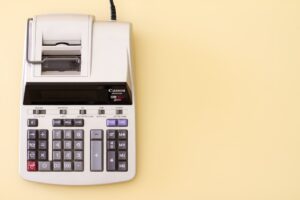The Dos and Don’ts of Starting Forex Trading
Forex trading, also known as foreign exchange trading, is the process of buying and selling different currencies. It has become increasingly popular among individuals looking to make a profit from the fluctuations in currency exchange rates. However, before diving into the world of forex trading, it is crucial to understand the dos and don’ts to maximize your chances of success.
Dos:
1. Educate Yourself: Forex trading is a complex field that requires a deep understanding of various factors affecting currency exchange rates. Start by learning the basics, such as how to read currency charts, analyze economic indicators, and interpret news releases. There are numerous educational resources available, including online courses, books, and webinars, that can help you build a strong foundation.
2. Create a Trading Plan: Before making any trades, develop a well-thought-out trading plan. This plan should outline your trading goals, risk tolerance, and strategies. It is essential to have a clear set of rules to follow, including when to enter and exit trades, to avoid emotional decision-making.
3. Use a Demo Account: Most reputable forex brokers offer demo accounts that allow you to practice trading with virtual money. Take advantage of this opportunity to familiarize yourself with the trading platform, test different strategies, and gain confidence without risking your hard-earned capital. It is advisable to spend a significant amount of time practicing on a demo account before switching to a live trading account.
4. Start with a Small Investment: When you are ready to trade with real money, start with a small investment. It is recommended to risk only a small portion of your overall capital on each trade, typically no more than 2-3%. This approach allows you to manage your risk effectively and minimizes the impact of potential losses on your trading account.
5. Practice Risk Management: Risk management is a crucial aspect of forex trading. Always use stop-loss orders to limit potential losses and set take-profit orders to secure profits. Additionally, diversify your trades by not concentrating all your capital in a single currency pair. By managing your risks effectively, you can protect your trading capital and preserve it for future opportunities.
Don’ts:
1. Don’t Trade Based on Emotions: Emotions such as fear and greed can cloud your judgment and lead to poor decision-making. Avoid making impulsive trades or chasing after profits. Stick to your trading plan and rely on objective analysis rather than emotions to make trading decisions.
2. Don’t Overtrade: Overtrading is a common mistake among beginners. It refers to excessive trading without a proper analysis or clear strategy. Trading too frequently can lead to increased transaction costs, emotional exhaustion, and poor decision-making. Focus on quality trades rather than quantity.
3. Don’t Ignore Fundamental Analysis: While technical analysis is essential in forex trading, it is equally important to consider fundamental analysis. Economic indicators, geopolitical events, and central bank policies can significantly impact currency exchange rates. Stay informed about these factors and incorporate them into your trading strategy.
4. Don’t Follow Others Blindly: It can be tempting to follow the advice or trading signals of others, especially experienced traders. However, blindly following others without understanding their rationale can be dangerous. Develop your own trading skills and strategies to make informed decisions based on your analysis.
5. Don’t Neglect Continuous Learning: Forex trading is a dynamic field, and market conditions can change rapidly. Stay updated with the latest news, economic developments, and trading techniques. Continuously improve your trading skills by attending webinars, reading books, and following reputable trading blogs. The more you learn, the better equipped you will be to navigate the complexities of the forex market.
In conclusion, starting forex trading can be an exciting endeavor, but it requires dedication, discipline, and continuous learning. Educate yourself, create a trading plan, and practice on a demo account before investing real money. Always manage your risks effectively and avoid emotional decision-making. By following these dos and don’ts, you can set yourself on the path to becoming a successful forex trader.





